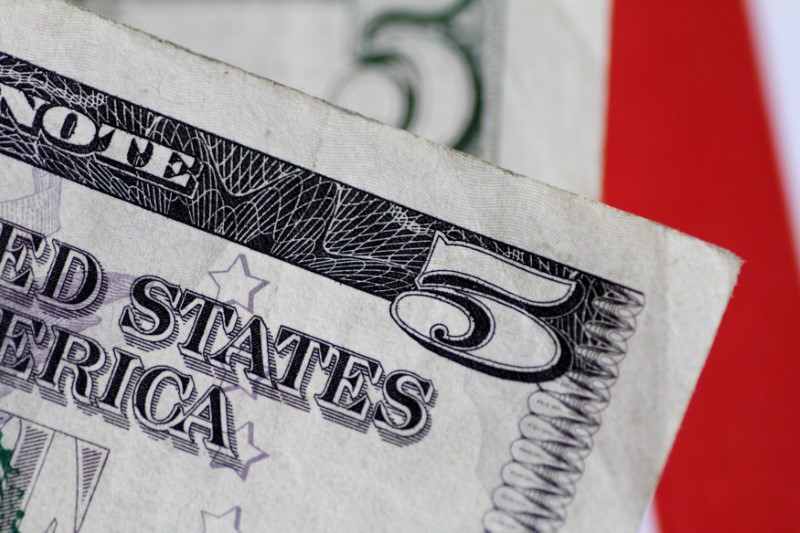Investing.com - The dollar extended gains against a currency basket on Tuesday as U.S. markets re-opened after the Labor Day holiday, with trade tensions and market turmoil in Argentina and Turkey underpinning demand.
The U.S. dollar index, which measures the greenback’s strength against a basket of six major currencies, was up 0.48% to 95.52 by 09:35 AM ET (13:35 GMT), the highest level since August 24.
Demand for the dollar was bolstered by the risk-off mood in markets amid fears over the impact on global growth from the Trump administration’s protectionist trade policies and strains in emerging markets.
U.S. President Donald Trump said last week he was ready to implement tariffs on an additional $200 billion worth of imports from China as soon as Thursday, which would ratchet up the trade row with Beijing.
Meanwhile, trade talks with Canada remained at an impasse after stalling on Friday, with Trump threatening to leave Canada out of a new deal already negotiated with Mexico.
The dollar was higher against the yen, with USD/JPY rising 0.28% to 111.37.
The euro fell more than half a cent against the firmer dollar, with EUR/USD down 0.57% to 1.1554.
The pound was also pressured lower, with GBP/USD sliding 0.23% to 1.2842 as worries over the prospect of a no-deal Brexit continued to weigh.
In emerging markets, Turkey’s lira was pressured lower amid lingering concerns over the country’s economic and currency crisis.
Data on Monday showed that Turkish inflation surged to a 15-year high in August, indicating that the steep selloff in the lira is driving up consumer prices.
Following the inflation data the country’s central bank indicated that a rate hike could be in the offing at its meeting later this month, but investors remain wary given Turkish President Tayyip Erdogan's firm opposition to high interest rates.
Deteriorating relations between the U.S. and Ankara and worries about Erdogan's increasing control over monetary policy and the economy have seen the lira tumble more than 40% this year.
Argentina’s peso also fell, re-approaching record lows against the dollar as the country’s government scrambled to deal with a fresh economic crisis.
Emerging market currencies have been hard hit by concerns that higher U.S. interest rates will pressure countries that have borrowed heavily in dollars in recent years.
